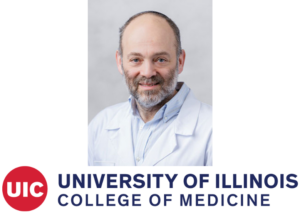 The CMT Research Foundation (CMTRF), a non-profit focused solely on delivering treatments and cures for Charcot-Marie-Tooth disease (CMT), has invested in a project led by Dr. Charles Abrams, a Professor in the Department of Neurology and Rehabilitation at the University of Illinois at Chicago. The study will determine if a commercially available drug can improve symptoms in mouse models of Charcot-Marie-Tooth disease type 1X-which is the second most common form of CMT. If successful, these studies will provide a strong basis for working to quickly advance this already commercially available drug as a potential clinical treatment for CMT1X patients.
The CMT Research Foundation (CMTRF), a non-profit focused solely on delivering treatments and cures for Charcot-Marie-Tooth disease (CMT), has invested in a project led by Dr. Charles Abrams, a Professor in the Department of Neurology and Rehabilitation at the University of Illinois at Chicago. The study will determine if a commercially available drug can improve symptoms in mouse models of Charcot-Marie-Tooth disease type 1X-which is the second most common form of CMT. If successful, these studies will provide a strong basis for working to quickly advance this already commercially available drug as a potential clinical treatment for CMT1X patients.
CMT1X is caused by mutations in the gene that encodes for the connexin 32 gap junction protein. CMT1X is known to be associated with inflammation, which is thought to contribute to damage of the protective covering of nerve cells, a process known as demyelination, which leads to disease symptoms.
Previous work done by Dr. Abrams demonstrated that nerves of a mouse model of CMT1X have reduced levels of adenosine, a naturally occurring molecule with anti-inflammatory properties, which provides a potential explanation for the nerve inflammation observed in CMT1X. Dr. Abrams and his team will perform a series of experiments to test whether a commercially available immunosuppressive drug can reduce the severity of the neuropathy in two mouse models of CMT1X by increasing the levels of adenosine and reducing nerve inflammation.
Dr. Abrams, a member of the CMTRF Scientific Advisory Board, will collaborate on this project with Mona Freidin, an Assistant Professor at the University of Illinois at Chicago, whose expertise lies in connexin biology; and Dr. Benayahu Elbaz, an Assistant Professor of Neurology at Northwestern University, whose research focuses on myelin and myelin-forming cells in both the central and peripheral nervous systems.
“Dr. Abrams specializes in studying the roles of connexins, or gap junction proteins, in myelination in both the central and peripheral nervous systems,” says Cleary Simpson, CEO of CMTRF. “His work is consistently productive and key to helping us find cures for ALL forms of CMT.”
